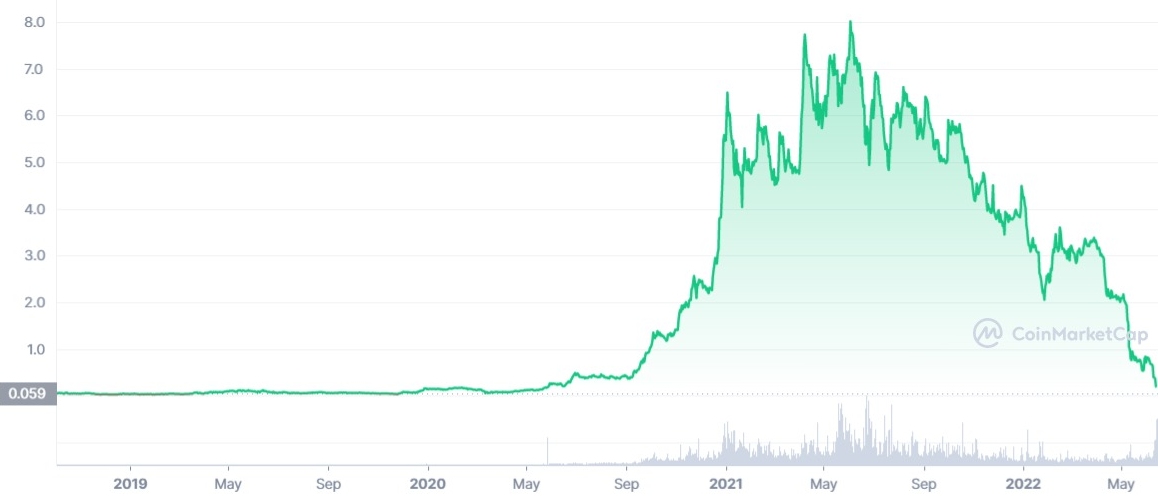In the electrifying realms of cryptocurrency and iGaming, your reputation is both your crown jewel and your Achilles’ heel. A 2023 study by the Reputation Institute found that up to 70% of a digital-first company’s market value stems from its reputation, a figure that Ascending to nearly 80% for blockchain-based businesses. In the decentralized, high-stakes worlds of Web3 and iGaming, where trust is both paramount and precarious, a single misstep can ignite a crisis that spreads like wildfire across platforms like X, Reddit, and Discord. This article dives deep into the unique reputation challenges of these industries, drawing from real-world case studies, expert insights, and proprietary research to deliver actionable Online Reputation Management (ORM) strategies that transform crises into opportunities for trust-building.
The Reputation Minefield of Web3 & iGaming
Web3 and iGaming operate in environments where information is uncontrollable, and trust is hard-earned yet easily shattered, making online reputation management critical. The 2023 Chainalysis Reputation Impact Report reveals that negative news about crypto projects spreads 3.7x faster than positive updates, with social platforms acting as amplifiers. In iGaming, the 2023 EGR Global Reputation Survey shows 83% of operators prioritize public trust above even regulatory compliance, underscoring the need for the best online reputation management practices.
- Decentralized Volatility: Blockchain’s transparency exposes exploits instantly. Kraken’s CEO Dave Ripley notes, “When something goes wrong in Web3, you have minutes, not hours, to respond. Speculation fills any void you leave.”
- iGaming’s Perfect Storm: High-value transactions, emotionally charged player experiences, and regulatory oversight amplify every issue. Isabelle Delisle, Director of Compliance at Evolution Gaming, explains, “A viral complaint about a delayed payout can spark regulatory inquiries across multiple jurisdictions.”
- Trust Paradox: A 2023 CoinDesk Research survey found 72% of crypto investors prioritize team trust, yet 64% remain skeptical of project transparency. In iGaming, a 2022 International Gambling Studies journal study revealed only 37% of players fully trust online casinos’ fairness, despite provable fairness tech.
- Anonymity vs. Accountability: Tezos’ Arthur Breitman highlights, “Web3’s open-source code and on-chain transactions contrast with pseudonymous teams, creating reputation friction traditional PR can’t handle.”
These dynamics demand a robust online reputation management strategy that’s fast, transparent, and tailored to decentralized ecosystems. The benefits of online reputation management here are clear: protecting brand value, retaining users, and turning crises into trust-building moments.
Case Studies: Crisis Management Done Right (and Wrong)
Real-world crises reveal what separates reputation resilience from ruin, showcasing the power of online reputation management strategies. Here’s a closer look:
Success: Wormhole Bridge Hack (February 2022)

The Wormhole cross-chain bridge suffered a $320M exploit due to a signature verification flaw, one of DeFi’s largest hacks. Within hours, token values crashed, and panic flooded Discord and X. Jump Crypto, a key stakeholder, leveraged online reputation management to respond decisively:
- 17-minute public acknowledgment across all channels.
- Technical transparency, sharing vulnerability details post-patch.
- Community engagement, with Discord updates every 30 minutes during peak crisis.
- Full accountability, replenishing all stolen funds within 24 hours.
Christine Kim of Galaxy Digital observed, “Jump’s response didn’t just save Wormhole; it set a new standard for the best online reputation management in DeFi.” Result? DappRadar reported a 24% increase in Wormhole’s total value locked (TVL) within three months, proving the benefits of online reputation management in action.
Failure: Celsius Network Collapse (June 2022)

Celsius Network’s liquidity crisis locked $4.7B in user funds, leading to bankruptcy. Their lack of an online reputation management strategy was catastrophic:
- Misleading tweets denying issues despite on-chain evidence of liquidations.
- Attacking whistleblowers as “FUD spreaders,” alienating users.
- Sporadic, overly optimistic updates that eroded credibility.
- Zero financial transparency, betraying Web3’s ethos.
Nic Carter of Castle Island Ventures said, “Celsius’ communication was a masterclass in what not to do.” The fallout triggered lawsuits, regulatory probes, and a 31% asset drop across the crypto lending sector in two weeks, per CryptoCompare, highlighting the risks of neglecting online reputation management.
iGaming Wins: Evolution Gaming Studio Scandal (July 2021)
Evolution Gaming faced a Bloomberg report alleging its games were accessible in sanctioned countries like Iran, violating U.S. laws. Their stock plummeted 16% in two days. Their online reputation management strategy was textbook:
- Same-day data release proving compliance via IP-blocking and KYC.
- Independent Ernst & Young audit to verify geolocation systems.
- Proactive media outreach, inviting journalists to review compliance tech.
- Detailed factsheet addressing every allegation.
Erik Nyman, President of Evolution North America, noted, “Our pre-existing response protocols turned a crisis into a compliance showcase.” No penalties were imposed, and their stock recovered in six weeks. Consultant Filippa Levander added, “Evolution now uses this incident to win clients in regulated markets,” a testament to the benefits of online reputation management.
iGaming Flop: 888 Holdings’ Self-Exclusion Failure (March 2022)
888 Holdings was fined £9.4M by the UK Gambling Commission after self-excluded problem gamblers accessed new accounts due to a technical glitch. Their weak online reputation management faltered:
- Four-day delay before a public statement.
- Technical-focused explanation lacking empathy for affected players.
- No leadership accountability, appearing dismissive.
- Reactive media strategy, missing proactive trust-building.
Dr. Mark Johnson of the University of Liverpool said, “888’s technical focus ignored the human impact, turning a glitch into a moral failure.” Company filings showed an 18% UK revenue drop the next quarter, far underperforming the market, underscoring the need for online reputation management strategies.
Expert-Backed ORM Strategies for Decentralized Success
NYU’s 2023 analysis of 37 Web3 and iGaming crises identifies clear patterns for the best online reputation management approaches. Here’s how to stay ahead:
1. Speed Is Everything
NYU found brands responding within 30 minutes recover 73% of pre-crisis sentiment in a week, versus 41% for those taking over two hours. Professor Rebecca Zhou warns, “In Web3 and iGaming, a 90-minute delay can be catastrophic.” Online reputation management strategies to prioritize speed include:
- 24/7 monitoring across X, Discord, Reddit, and Telegram.
- AI-powered sentiment tools trained on crypto and iGaming slang to catch issues early.
- Pre-crafted response templates for rapid, tailored statements.
2. On-Chain Reputation Systems
Web3’s transparency is a superpower for online reputation management. Evin McMullen of Disco.xyz says, “Reputation is shifting to verifiable credentials.” Strategies include:
- Decentralized IDs (e.g., Aave’s Polygon ID integration) for privacy-preserving trust.
- On-chain health scores, like MakerDAO’s, aggregating audit history, treasury diversity, and governance metrics.
- Fairness proofs, like Playtech’s Trustchain, offering cryptographic game integrity for iGaming.
Chainalysis’ Jack Clancy notes, “Firms with strong on-chain reputations saw 27% better user retention in the 2022 bear market,” highlighting the benefits of online reputation management.
3. Community as Crisis Allies
Stake.com’s community crisis teams reduced negative sentiment by 47%. Bryce Wilson, their CMO, explains, “We give respected community voices direct access during crises to ask tough questions and share accurate updates.” Online reputation management strategies include:
- Community manager presence on Discord for real-time engagement.
- Technical team AMAs to address concerns transparently.
- Incentivized advocacy to turn influencers into allies.
4. iGaming-Specific ORM
iGaming faces regulatory and social stigma challenges. The best online reputation management practices include:
- Compliance transparency, showcasing KYC, geolocation, and fairness tech.
- Empathetic player responses addressing emotional concerns (e.g., payout delays).
- Regulatory PR, proactively engaging authorities to preempt inquiries.
5. Advanced Sentiment Analysis
Traditional keyword monitoring doesn’t cut it for online reputation management. Ogilvy’s Jennifer Hodgson says, “Crypto and iGaming communities use evolving slang and memes. AI must understand their language.” Tools enhancing online reputation management strategies include:
- Coinfluence Analytics, trained on 200M crypto discussions, distinguishes technical vs. trust issues.
- GambleGuard’s iGaming engine flags early crisis signals with community-specific NLP.
The Future of ORM: Reputation-First Design
The best online reputation management embeds reputation into a brand’s core, as Binance’s Changpeng Zhao asserts: “Your reputation is your business model.” Flutter Entertainment’s Peter Jackson echoes, “We evaluate every feature for reputation impact alongside revenue.” Emerging tech is shaping this future:
- Predictive Analytics: Chainalysis and Elliptic’s early warning systems monitor on-chain metrics (e.g., unusual withdrawals) to predict crises days ahead. Caroline Malcolm of Chainalysis says, “We spot patterns that signal problems before they hit public perception.”
- Integrated Dashboards: SuperRare’s internal system correlates social sentiment, on-chain activity, artist satisfaction, and regulatory risks for a 360-degree reputation view.
- Web3 Reputation Protocols: The Guild Protocol’s cross-chain reputation scores reward healthy reserves and prompt withdrawals, giving users trust signals.
Importance of Online Reputation Management
Up to 80% of Web3 and iGaming worth hinges on reputation, protected by strategic reputation management.
Negative crypto news, surging 3.7x faster, gets contained through rapid reputation management tactics.
In distrustful Web3 and iGaming ecosystems, reputation management secures lasting user confidence.
Hacks and scandals become trust-building wins with effective reputation management strategies.
Transparency via reputation management meets Web3 ethos and iGaming regulatory requirements.
Why ORM Matters Now
A tweet, a smart contract bug, or a player complaint can reshape your future in minutes. Strategic online reputation management isn’t just damage control—it’s a chance to prove integrity. ICODA’s tailored solutions empower Web3 and iGaming brands to act fast, build trust, and turn crises into showcases of resilience. Share your project link, and our ORM experts will connect with you!
Rate the article














